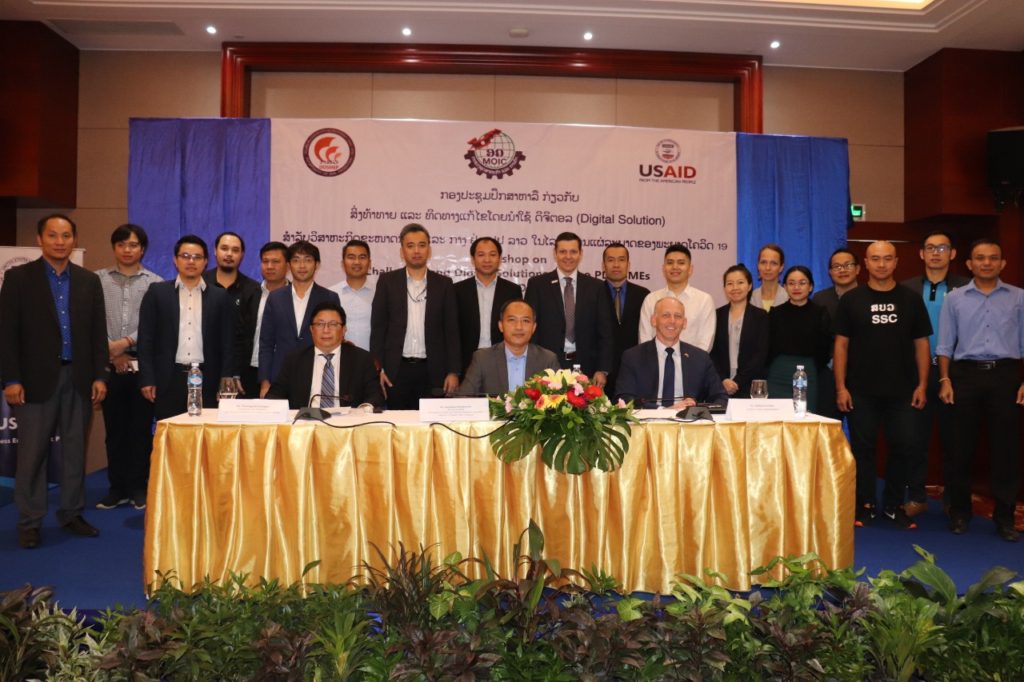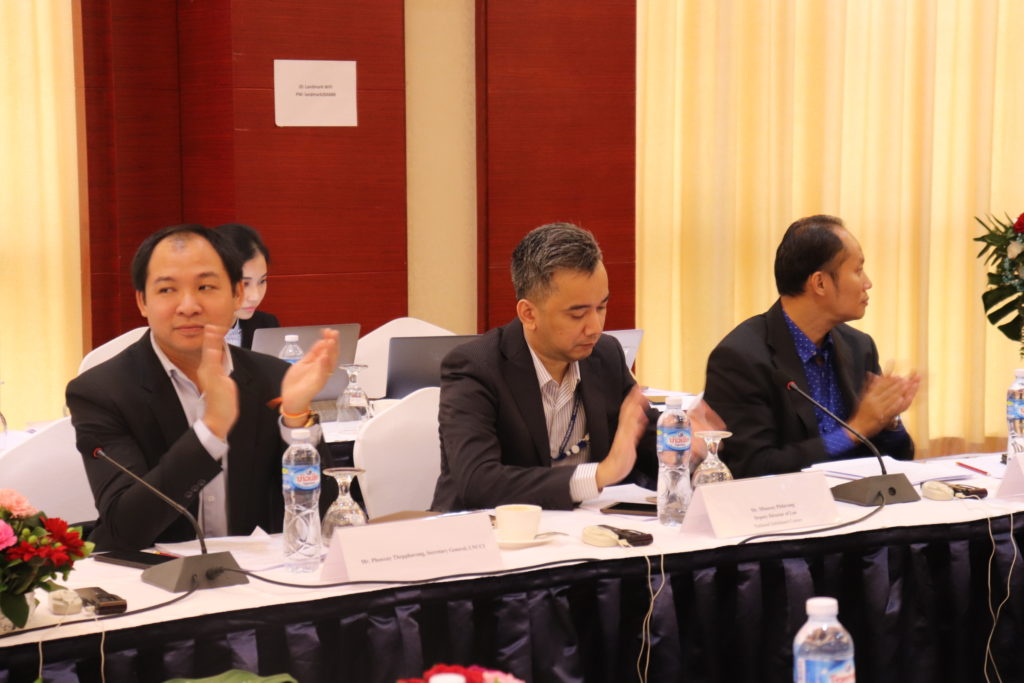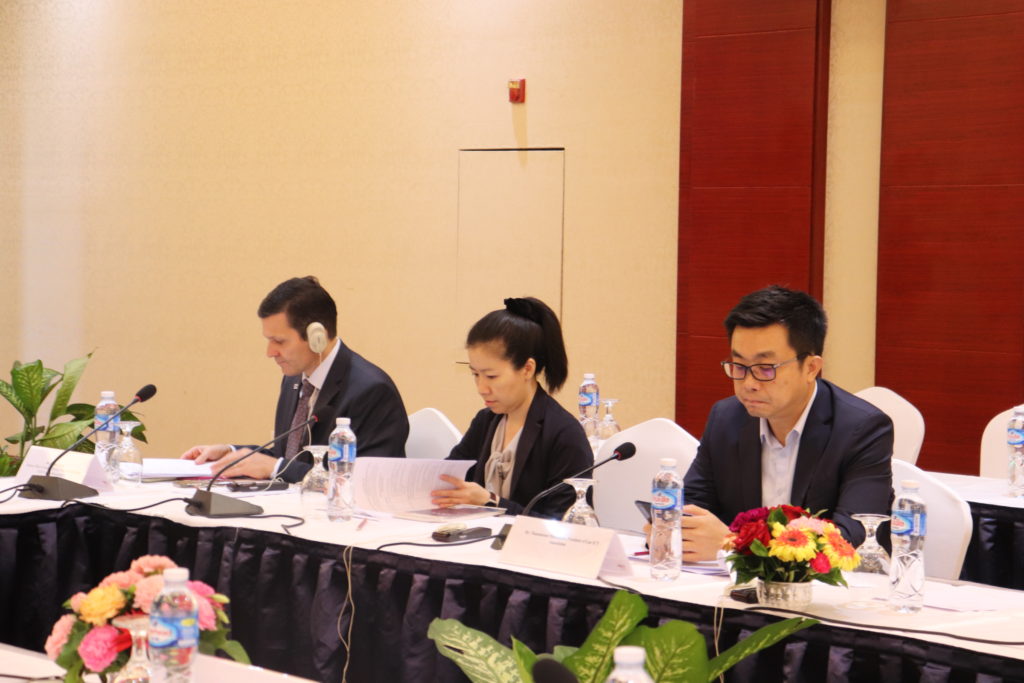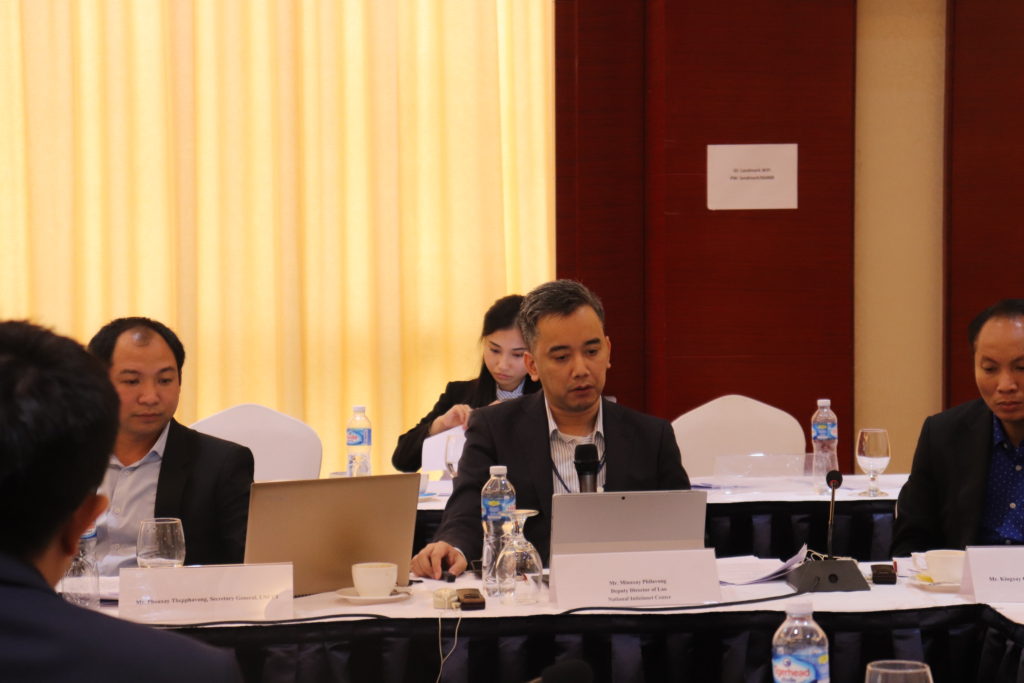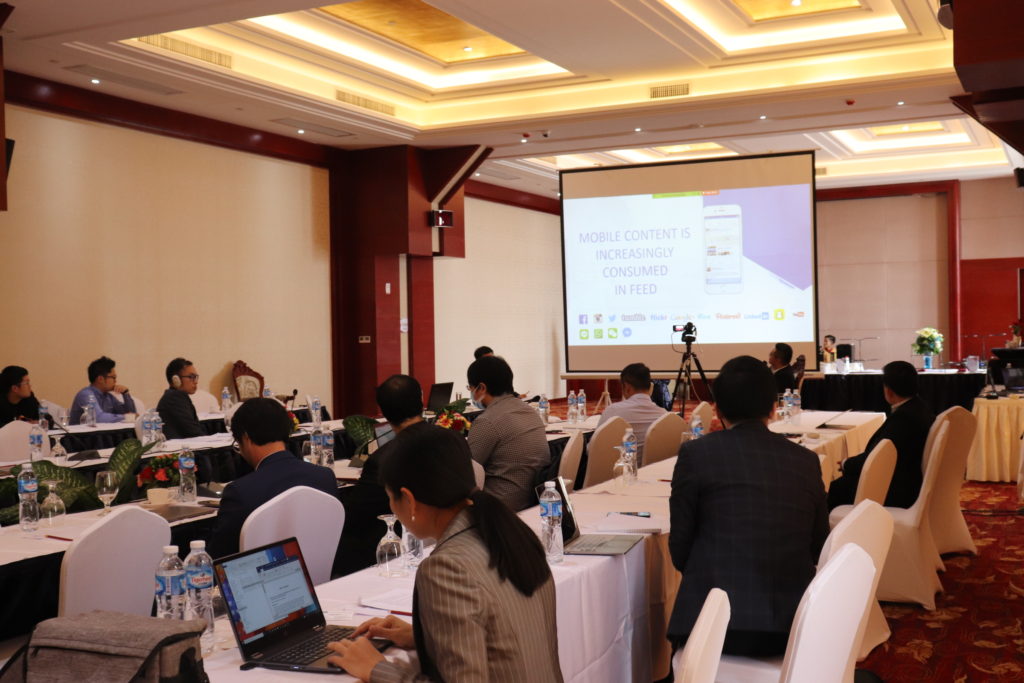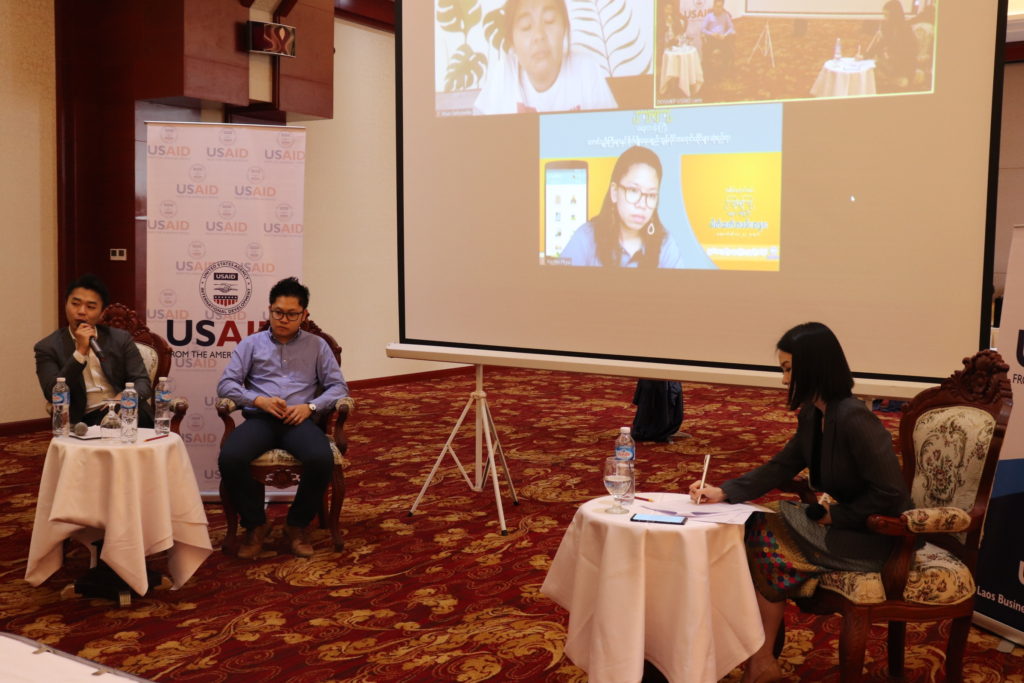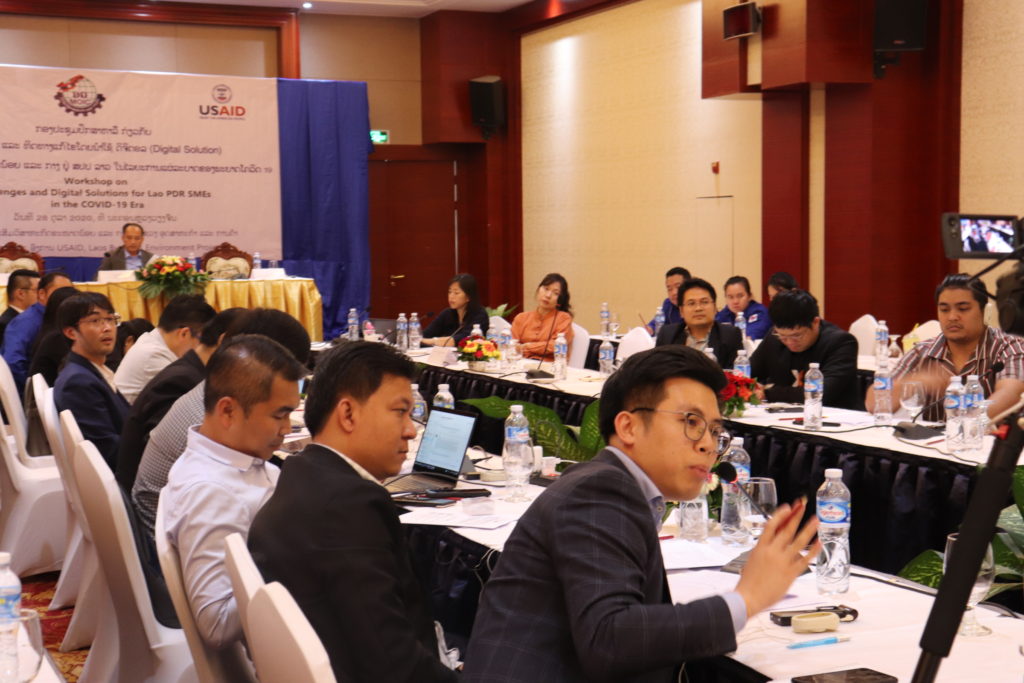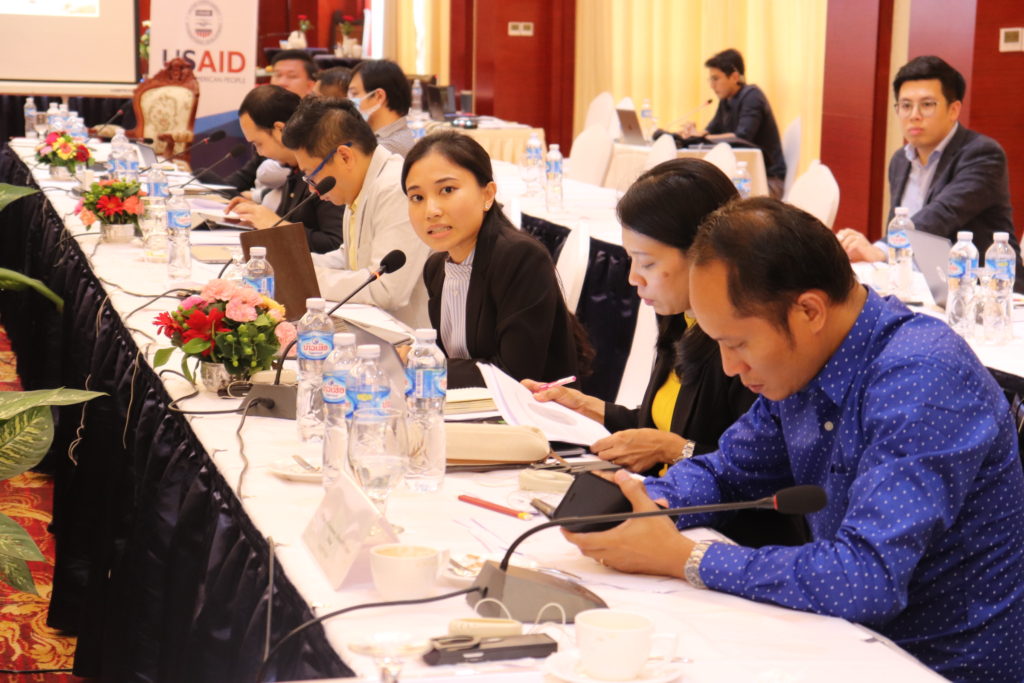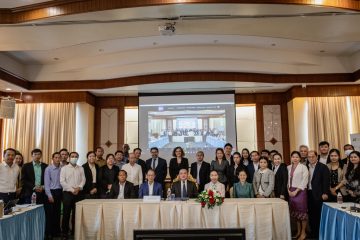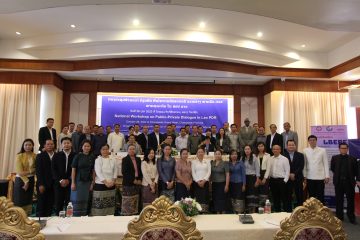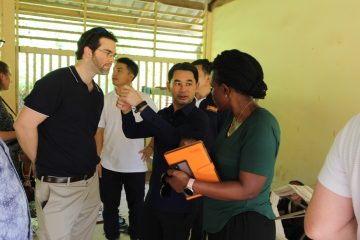Workshop on Challenges and Digital Solutions for Lao PDR SMEs in the COVID-19 Era
Vientiane, 28 October 2020. The Department of Small and Medium Enterprise Promotion (DOSMEP), the Ministry of Industry and Commerce, with support from the USAID Laos Business Environment Project, organized a Workshop on Digital SMEs: Challenges and Digital Solutions for Lao PDR SMEs in the COVID-19 Era, at the Landmark Mekong Riverside Hotel. The workshop was co-chaired by Mr. Bountheung Douangsavanh, Director-General of DOSMEP; Mr. Thanongsinh Kanlagna, Vice President of the Lao National Chamber of Commerce and Industry (LNCCI); and Mr. Michael Ronning, Country Representative, U.S. Agency for International Development (USAID). Workshop participants included approximately 40 representatives from a broad range of public and private sector organizations, including small and medium enterprises (SMEs) in ICT sector, relevant business associations in Lao PDR along with development partners such as USAID, DFAT, and ARISE Plus.
This workshop aimed to be one of the platforms for public and private dialogue, particularly Lao SMEs in sharing experiences on how to utilize modern technology, digital solutions to overcome the challenges brought by the COVID-19 pandemic. In addition, the workshop focused on highlighting the methods for SMEs to navigate and recover from the impacts of COVID-19 via panel discussions on key relevant issues. These included government incentives to support SMEs during the time of COVID-19, presentations of practical digital products and services to increase efficiency and capacity for SMEs, as well as spotlighting successful SMEs in Lao PDR, Cambodia and Myanmar and learn how they adapt to the new business.
Mr. Bountheung Douangsavanh, Director General, DOSMEP, the Ministry of Industry and Commerce, emphasized the importance of supporting SMEs, which comprise 98% of the business in Lao PDR, on recovering from the severe impact of COVID-19 pandemic. He pointed out that tourism sector has been heavily impacted by the COVID-19 pandemic and that it created a ripple effect to other sectors as well particularly handicraft, restaurant and hospitality sectors in which most of those are SMEs. Therefore, it is important that SMEs have to adapt and adopt modern technology, particularly digital solutions to reduce cost of production and increase efficiency and effectiveness of operation.
In his opening remarks, Mr. Thanongsinh Kanlagna, Vice President of the LNCCI, stated that it is vital to educate and support SMEs in the use of technology to modify and improve themselves to integrate into the global value chain. The LNCCI has recognized that importance of ICT in SME development and has been making an effort to ensure that SMEs are supported in the transition to digital economy. Together with this, LNCCI has been encouraging provincial chamber of commerce and industry to promote digital solutions to their members.
“SMEs is the central to economic growth in Lao PDR, they often lack resources and capacity to grow their businesses and access new market”, said Mr. Michael Ronning, USAID Country Representative. The digital tools and solutions, therefore, play a critical role in enabling businesses to turn challenges into opportunity. He also emphasized that the US government is very committed to support the development of the digital economy in Laos as part of US-Laos bilateral comprehensive partnership to improve business competitiveness in pursuing sustainable economic growth.
At the end of the workshop, the USAID Laos Business Environment Project team summarized the key takeaways from the workshop and identified the key priority digitally-oriented interventions that could be supported under the project, including activities to improve the capability of SMEs in adopting modern technologies, and provide informational workshop to entrepreneurs on e-commerce.
The Lao Business Environment (LBE) was funded by USAID. The project provides capacity building and advisory services aimed at strengthening the competitiveness of Lao Small and Medium Enterprises (SMEs) while improving implementation of trade-related laws, policies and regulation. The project also targets the industry and service sectors with the highest growth and job creation potential.
